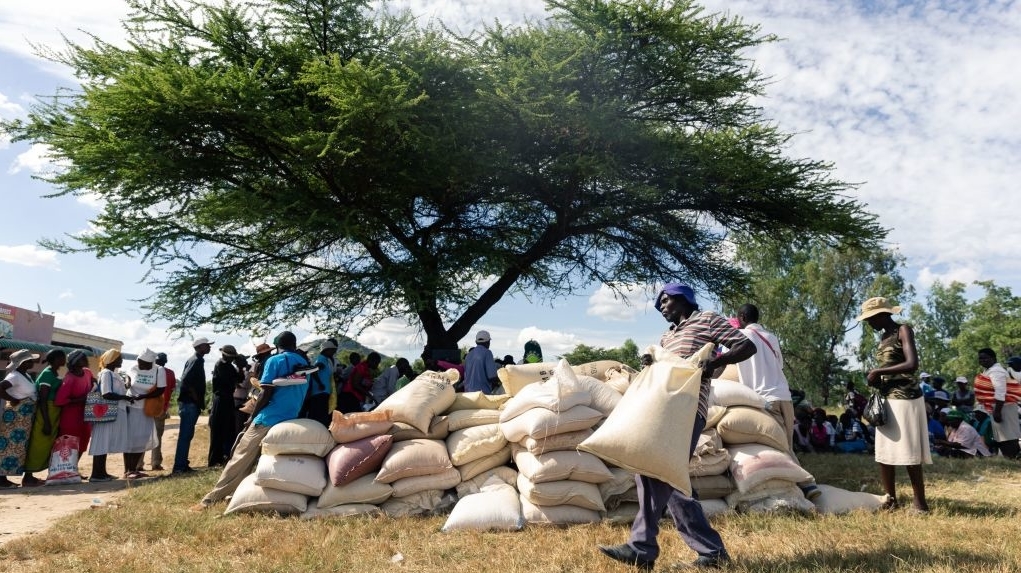
Zimbabwe to get US$60 million in food aid from the USA

The United States says it will provide US$60.55 million to assist Zimbabwe with its food insecurity during the lean season.
Early in June, Zimbabwean authorities said the southern African country’s 2019/20 maize production of 907 628 tonnes would not meet its requirement for 1.8 million tonnes.
As a result, there are more than 4.3 million severely food insecure people in rural areas in Zimbabwe, according to the latest Integrated Food Security Phase Classification (IPC) analysis, undertaken in February 2020.
In addition, 2.2 million people in urban areas are “cereal food insecure”, according to the most recent Zimbabwe Vulnerability Assessment Committee (ZimVAC) analysis.
The United States has, however, said it will provide funding toward the World Food Programme’s (WFP) 2020/21 Lean Season Food Assistance program in Zimbabwe.
In a statement released on Monday, the United States Embassy in Zimbabwe said the lean season assistance will begin in August and will feed nearly one million people during the peak of the season, from January to April 2021.
According to the Harare-based US Embassy, Zimbabwe faces one of its worst food security crises in a decade due to the “combined effects of failed economic and agricultural policies, corruption, consecutive poor agricultural seasons, the aftermath of Cyclone Idai, and now, the Covid-19 pandemic.”
“The United States remains committed to responding to the humanitarian situation, providing critical food assistance to Zimbabwe’s most vulnerable, while responding to the Covid-19 pandemic and maintaining essential services,” Ambassador Brian A. Nichols said.
“Our Lean Season Assistance programme addresses the urgent food needs of the most vulnerable Zimbabweans, who are facing a triple threat of climate induced drought, economic crisis, and the Covid-19 pandemic,” said WFP Zimbabwe Country Director and Representative (OIC), Niels Balzer.
In June, USAID announced an additional US$10 million to ensure that nearly 100 000 people in eight urban areas have access to adequate food supplies between July and December 2020.
Meanwhile the Zimbabwe government through revenue collector Zimbabwe Revenue Authority (ZIMRA) has said it will allow selected agricultural goods and livestock to be imported into the country duty free.
In a statement released over the weekend, ZIMRA listed goods such as combine harvesters, agricultural tractors, potassium chloride/sulphate, and live pure breeding pigs, goats and sheep as some of the goods and livestock that can be “imported duty free”.
“It is that time again when farmers are preparing for the beginning of the forth-coming cropping season. The Customs and Excise Tariff and Value Added Tax (VAT) Regulations provide lower rates for the importation of critical agricultural goods.”






